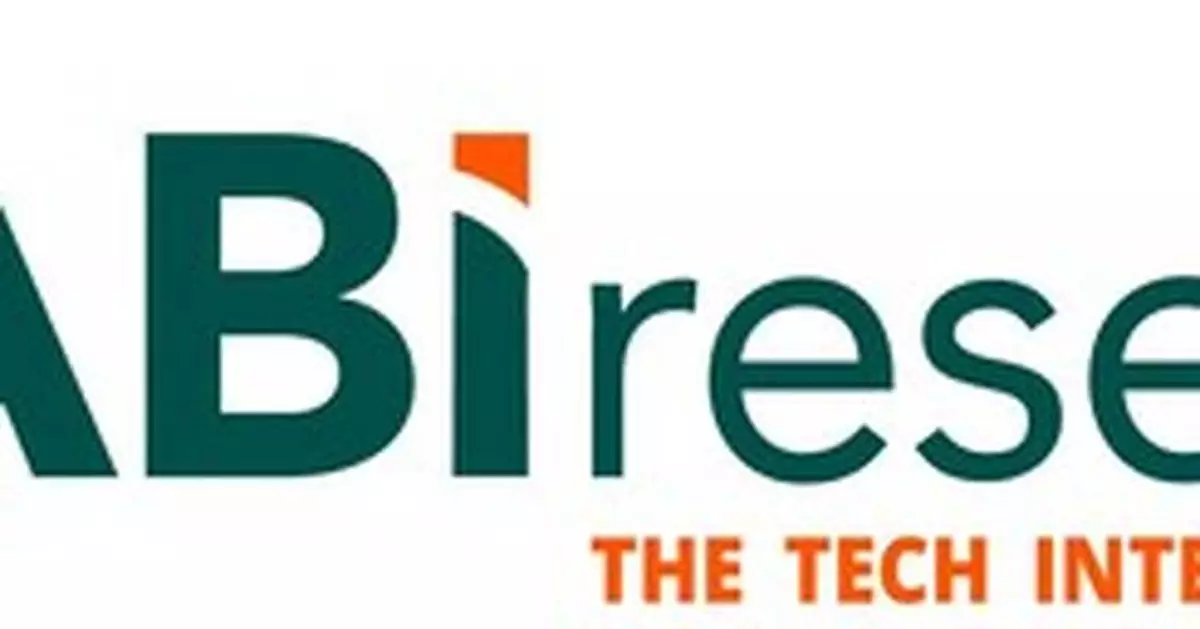ABI Research's 5th annual Trend Report identifies the 53 key technology trends that will come to fruition—and the 48 that won't—in 2025
NEW YORK, Dec. 12, 2024 /PRNewswire/ -- As 2025 kicks off, predictions abound on the technology innovations expected in the year ahead. However, several highly anticipated advancements, including AI-RAN, Consumer Smart Glasses, Humanoids, and Semiconductor Onshoring, will NOT happen in 2025, states global technology intelligence firm ABI Research.
In its new whitepaper, 101 Technology Trends That Will—and Won't—Shape 2025, ABI Research analysts identify 54 trends that will shape the technology market and 47 others that, although attracting vast amounts of speculation and commentary, are less likely to move the needle over the next twelve months.
"2024 has been marked by challenges, from global conflicts and inflationary pressures to political uncertainty. These factors have strained enterprise and consumer spending, leading to market inertia, short-term technology investments, sidelined capital, and the exposure of vulnerable suppliers," says Stuart Carlaw, Chief Research Officer at ABI Research. "From a technology perspective, many industries and end markets are in that awkward stage of technology adoption where they are formulating implementation strategies, assessing solutions and partners, and trying to see if they have the resources needed to roll out solutions at scale. This is a particularly sensitive time, which tends to suggest 2025 will have tech implementers and end users on the brink of a period of a massive technology shift as they work through these issues."
What Won't Happen in 2025:
AI-RAN Will Not Be Widely Deployed
Despite rapid progress, Artificial Intelligence (AI) technology for the RAN ecosystem (AI-RAN) remains in early development, with commercial deployments not expected before 2026. SoftBank recently completed a trial and plans deployment by 2026, with broader adoption likely by 2027, given Japan's history as an early tech adopter. In 2025, trials and pilot projects will advance the technology, but large-scale deployment will take longer to materialize.
Consumer Smart Glasses Will Not See Adoption at Scale
Despite the significant strides that we will see in AI, smart glasses are expected to remain predominantly in the realm of early adopters. In terms of consumer adoptions, Virtual Reality (VR) will maintain its strongest foothold in gaming, sports, and fitness, where immersive experiences have already proven their value and consumer demand remains. While some companies will hit the market with early products and developer solutions, such as Snapchat with its newest Spectacles, 2025 will still be another transitional year for smart glasses, with most traction coming from niche applications, rather than widespread consumer or at-scale deployment.
Humanoids Will Not Take Over the World
Funding will continue to be drawn to humanoid development due to the societal issues the technology promises to address. The year 2025 is also when China intends to become the global humanoid leader. However, humanoids are not yet ready to experience widescale uptake. Significant advances have been made in hardware—now there are a dozen humanoids as advanced as Boston Dynamics' Atlas—while teleoperation has demonstrated impressive performance. Humanoids will struggle to advance much beyond this point without a radical step change in AI. Despite this technical shortfall, automotive manufacturing will continue to be the proving ground for humanoid robots and more manufacturers will buy into the form factor in 2025.
Semiconductor Onshoring Dreams Will Not Come True
The year 2025 will be a pivotal reality check for U.S. and European semiconductor onshoring efforts, as implementation challenges force significant delays. Despite the U.S. CHIPS Act's US$7.86 billion grant to Intel and ambitious US$100 billion investment plans, key projects like Intel's Arizona and Ohio sites, TSMC's Arizona fab, and Europe's Magdeburg facility face setbacks due to EUV machine shortages, workforce gaps, and operational complexities. Full operational capacity is unlikely before 2027, jeopardizing the EU's goal of 20% global chip production by 2030. These obstacles will prompt a strategic reassessment in 2025, shifting focus from full onshoring to pragmatic diversification and trusted partnerships. The semiconductor cold war may also slow innovation in AI and other advanced technologies reliant on cutting-edge chips.
"This coming year will be key in understanding how Artificial Intelligence, Generative Artificial Intelligence (Gen AI), the cloud, the edge, the hybrid cloud, Extended Reality (XR), enterprise 5G, and the ambient Internet of Things (IoT) will develop. Much is needed in terms of shifting from visioneering to real-world marketing, education, marketing around alleviating pressing endemic risks, and shifting to smaller practical revenue-generating implementations, rather than trying to "boil the ocean." We look forward to helping our clients navigate the intricacies of 2025. Focusing on customer value, driving ROI, and addressing endemic issues will be key factors to success," Carlaw concludes.
For more trends that won't happen in 2025 and the 53 trends that will, download the whitepaper, 101 Technology Trends That Will—and Won't—Shape 2025.
About ABI Research
ABI Research is a global technology intelligence firm uniquely positioned at the intersection of technology solution providers and end-market companies. We serve as the bridge that seamlessly connects these two segments by providing exclusive research and expert guidance to drive successful technology implementations and deliver strategies proven to attract and retain customers.
ABI Research是一家全çƒæ€§çš„技术情报公å¸ï¼Œæ‹¥æœ‰å¾—天独厚的优势,充当终端市场公å¸å’ŒæŠ€æœ¯è§£å†³æ–¹æ¡ˆæ供商之间的桥æ¢ï¼Œé€šè¿‡æä¾›ç‹¬å®¶ç ”ç©¶å’Œä¸“ä¸šæ€§æŒ‡å¯¼ï¼ŒæŽ¨åŠ¨æˆåŠŸçš„技术实施和æä¾›ç»è¯æ˜Žå¯å¸å¼•å’Œç•™ä½å®¢æˆ·çš„æˆ˜ç•¥ï¼Œæ— ç¼è¿žæŽ¥è¿™ä¸¤å¤§ä¸»ä½“。
For more information about ABI Research's services, contact us at +1.516.624.2500 in the Americas, +44.203.326.0140 in Europe, +65.6592.0290 in Asia-Pacific, or visit www.abiresearch.com.
Contact Info:
Global
Deborah Petrara
Tel: +1.516.624.2558
pr@abiresearch.com
** The press release content is from PR Newswire. Bastille Post is not involved in its creation. **

Tech Trends That WON'T Happen in 2025: AI-RAN, Consumer Smart Glasses, Humanoids, and Semiconductor Onshoring - To Name a Few










